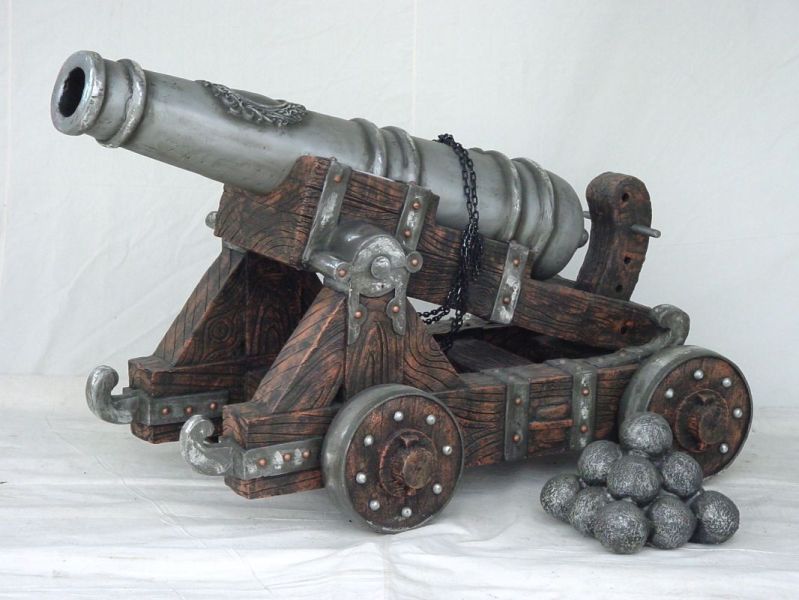
Call: please share your views on Bussemaker's vision
Ah, what the heck. We can, of course, study the piece for ourselves first and then come up with a peppery response and interpretation to it, and it will certainly come. But why

Ah, what the heck. We can, of course, study the piece for ourselves first and then come up with a peppery response and interpretation to it, and it will certainly come. But why
Vandaag werd het Nederlands paviljoen van de Biënnale in Venetië geopend door minister van cultuur Jet Bussemaker. En ze deed dat met een speech die de cultuursector zal waarderen. Niet langer de harde en kille toon van Halbe Zijlstra’s neoconservatieve leegheid, maar een
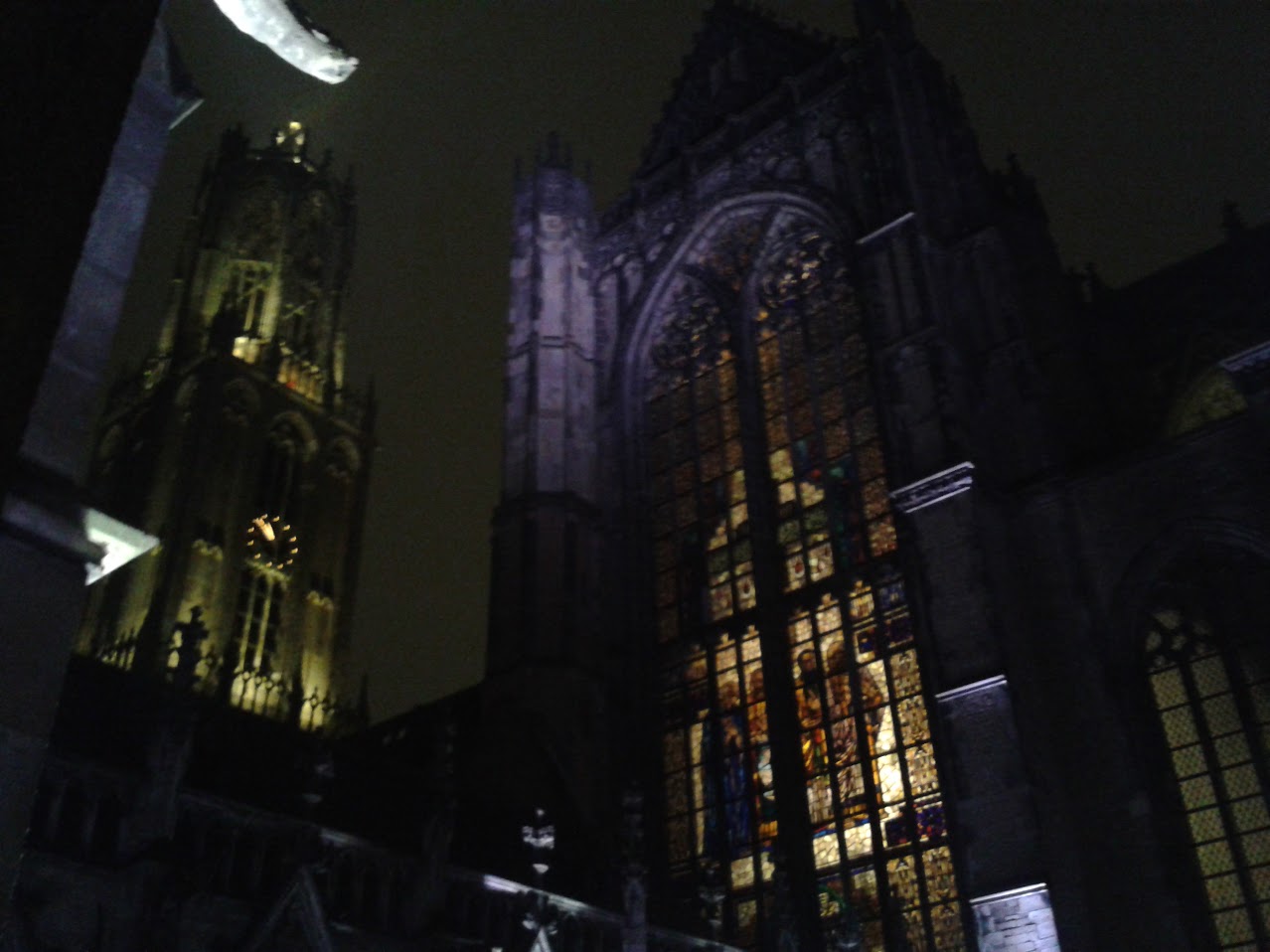
More than a decade without national pride does a lot to a country. Could it be true that the simultaneous closure of Stedelijk Museum and Rijksmuseum contributed to the
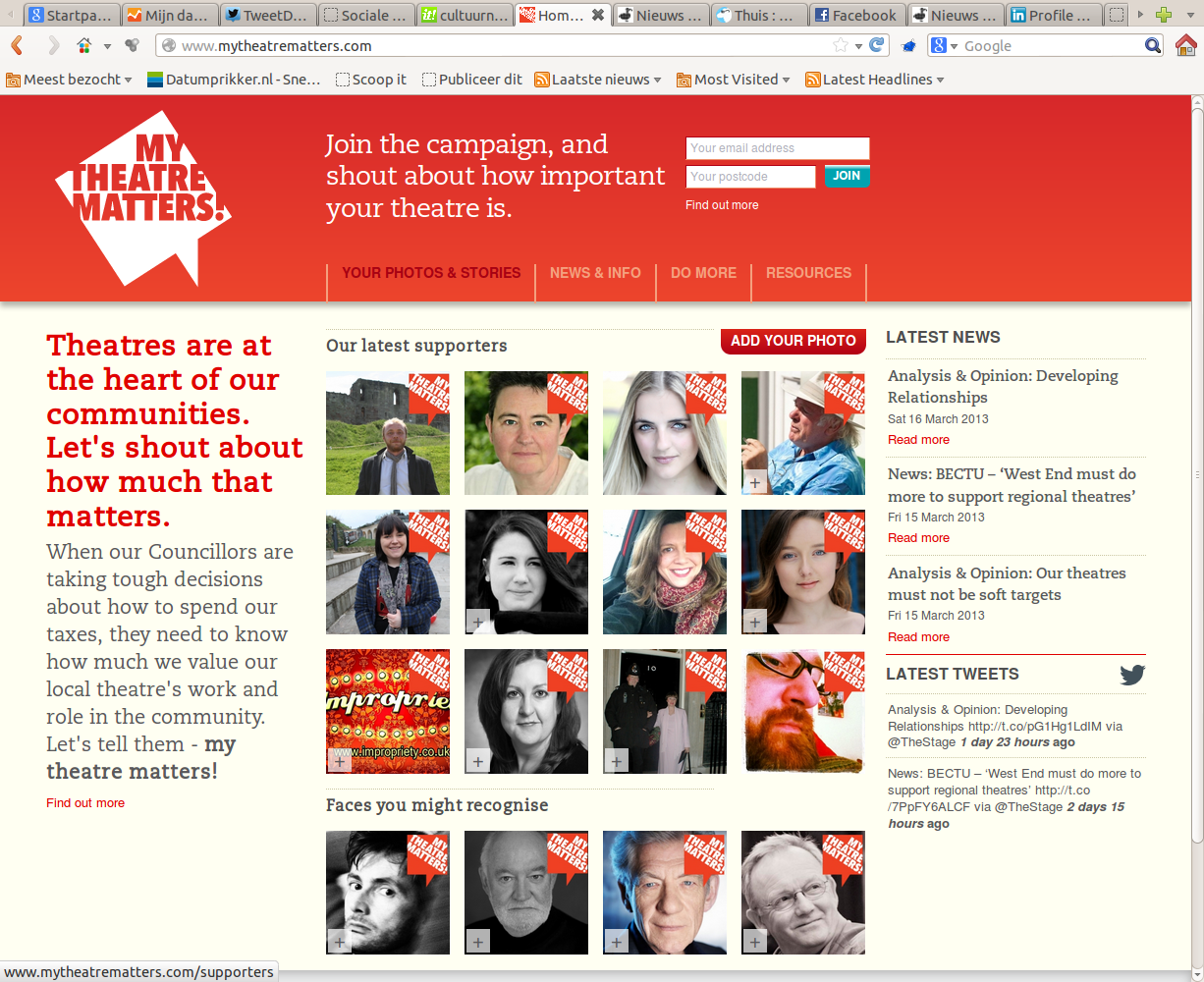
The Cry for Culture with which the Dutch cultural world launched its opposition to the scrapping of art subsidies in 2010 was, in retrospect, a publicity disaster. Perhaps not yet as unfortunate as
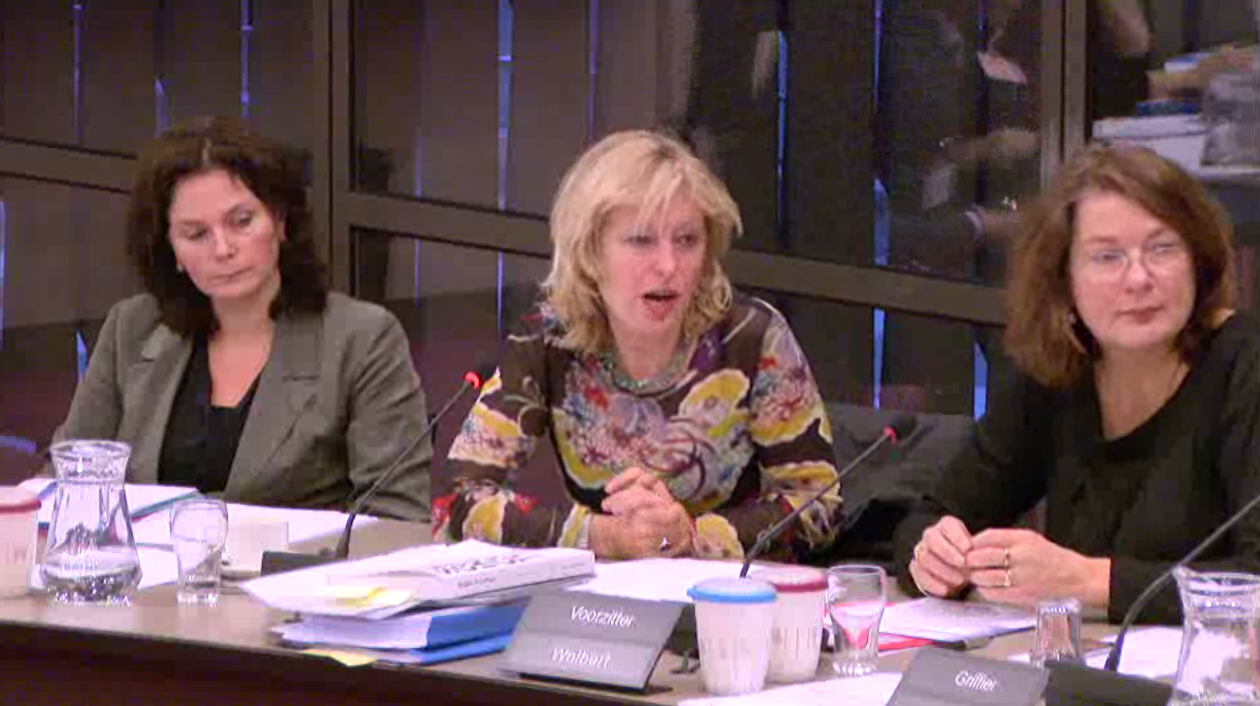
Rijksmuseum Twente kan waarschijnlijk open blijven nu minister van cultuur Jet Bussemaker (PvdA) aan de kamer heeft toegezegd om de geplande bezuiniging van 50% op de exploitatie te halveren. Bovendien gaat zij zich hard maken om ‘linksom of rechtsom’ het vak Culturele en Kunstzinnige Vorming in het voortgezet onderwijs als verplicht examenvak te behouden,

We melden het persbericht maar even onverkort. Ter informatie. Komen zo nu en dan meer van dit soort berichten langs. We plaatsen niet alles, want daar wordt de wereld wel erg somber van. De wereld zoals veel mensen die kenden, en waarvan ze dachten dat het de trots van Nederland was, komt piepend en krakend tot stilstand om ruimte te bieden aan. Tja. Daar gaan we de komende jaren verslag van doen. Van wat daarvoor in de plaats komt.
The previous Secretary of State for Culture, Halbe Zijlstra, made his draconian cuts cast in concrete. The 35-40 per cent cut in the budgets of orchestras, theatre companies and some museums has become law. The new minister of culture, PvdA star Jet Bussemaker, cannot change that at all an iota. And if she even wanted to: the architect of the cuts she has to allow sits in the chamber as the ruling party's group leader. No chance That he will allow his policies to go down the drain.
Als Nederland consequent volhardt in eerder ingenomen PVV-standpunten, zegt de tweede kamer op 21 november 2012 ‘Nee’ tegen een Europese investering in cultuur, innovatie en media. Als het huidige kabinet Rutte echter vasthoudt aan de pro-Europese houding die in het regeerakkoord is opgenomen, staakt Nederland zijn verzet tegen de bijdrage van 1,8 miljard euro aan versterking van cultuur, die inmiddels door alle andere Europese lidstaten is goedgekeurd.
There it is: the coalition agreement of the new cabinet of the man who previously managed to associate the terms 'subisidy slave' and 'empty halls' with the fine arts. The tone is different now, and we owe that to the input of the PvdA, just as earlier we apparently owed the sneering tone to Martin Bosma's PVV.
Het ministerie van OCW steekt de komende jaren tijd en geld in verbetering van het cultuuronderwijs op de basisscholen. Via een combinatie van reeds bestaande potjes en geld dat door rijk, gemeentes en provincies wordt bijgedragen komt er in de komende jaren per jaar 41,5 miljoen euro vrij voor de kunsteducatie. En voordat iedere ZZP-ende kunstenaar nu alvast plannen gaat maken: dat geld gaat vooral naar onderzoeken en procedures, waarbij het meest concrete doel is: ‘de ontwikkeling van een leerlijn cultuureducatie’.
Deze week viel officieel het doek voor de Theatre Emabassy, een club bevlogen mensen die Nederlandse kunstenaars liet samenwerken met kunstenaars in ontwikkelingslanden als Honduras, Bhutan en Congo. De voorstellingen die dat opleverde waren maar sporadisch in Nederland te zien, maar zo nu en dan maakte een project ook hier breed indruk, zoals een ‘Op Hoop van Zegen’, gespeeld door echte vissers, maar dan uit Mali.
The Theatre Museum's entire collection has been saved. The archives of luminaries such as Wim Kan and Louis Davids, as well as 50,000 theatre reviews, 30,000 theatre posters, 146,000 photographs of 22,000 performances, 26,000 portrait photographs of 2,450 theatre-makers and an extensive audio and video collection will be housed at the University of Amsterdam.The move is possible now that the Ministry of Education, Culture and Science (OCW), with the ever-money-hungry State Secretary for Culture Halbe Zijlstra, is no longer seizing the reserves of the Theater Instituut Nederland (TIN).
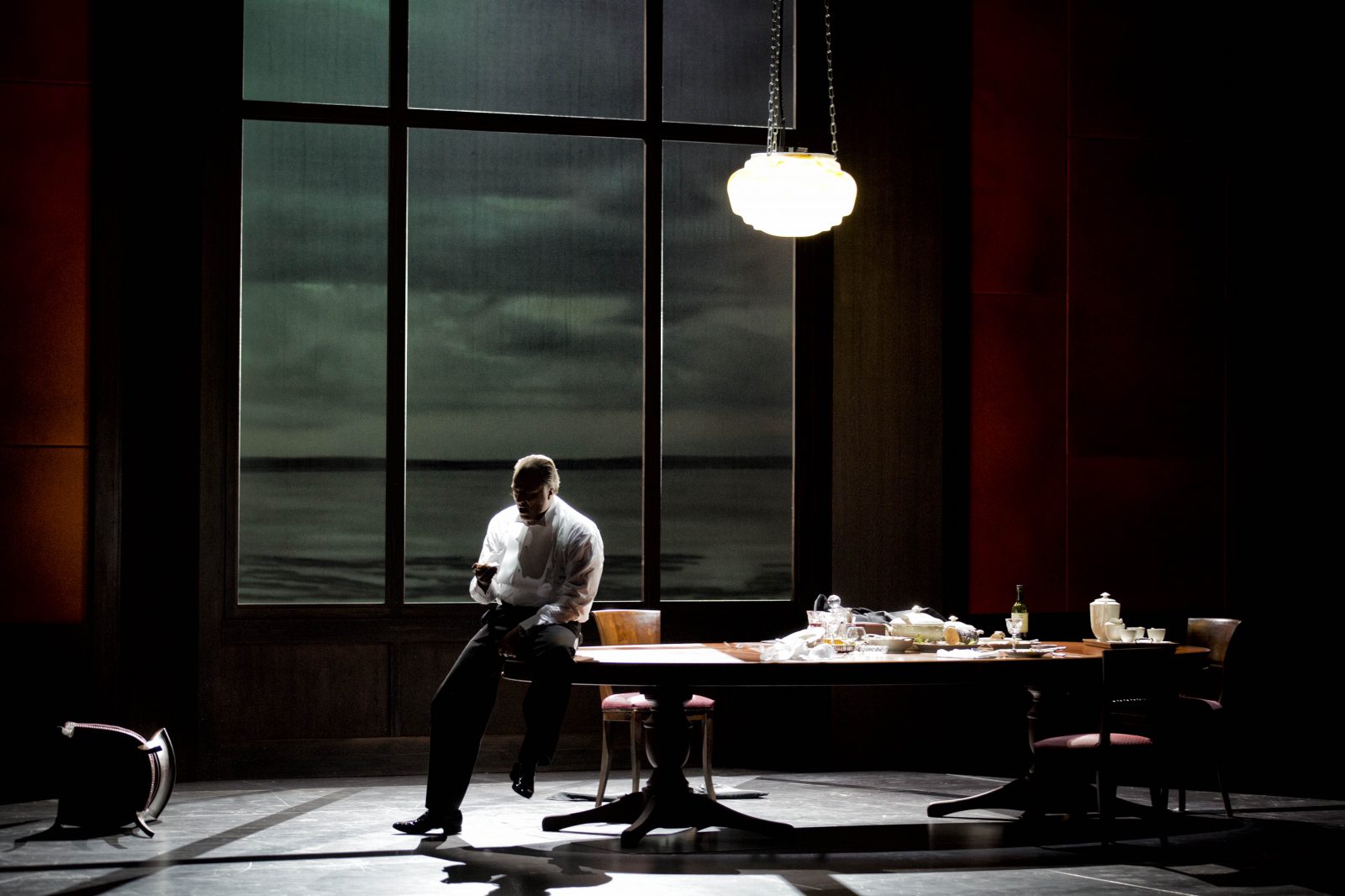
Het is de eerste massascène in Wagners Ring: Siegfried voert Brünnhilde naar de Gibichungenburcht en Hagen roept al zijn mannen bijeen. Vanaf het zijtoneel klinkt letterlijk oorverdovend hoorngeschal, maar dirigent Ed Spanjaard laat doorspelen. En terecht: in het orkest slaat een vonk over. Het hele toneel is in een oogwenk gevuld en het koor zwelt in kracht aan, luider en luider, alsmaar luider, tot de extatische apotheose:
Halbe Zijlstra is proud of his policy, and keen to come and tell it in front of the entire cultural sector. So on Sunday 26 August, he appeared on stage during the annual 'Paradiso Debate' to reiterate how well things had gone with the 200 million cut in the arts sector. He praised the resilience of the affected art world, and would be happy to do the same again.
Het grote onderzoeks- en managementconsultantsbureau Berenschot heeft becijferd dat de bezuinigingen op kunst per saldo mee blijken te vallen. Opdrachtgever van het onderzoek, De Volkskrant, kopte dat dan ook groot. En inderdaad, het is soort van goed nieuws dat de stapeling van bezuinigingen (het rijk 24% minder, de provincies 20% minder en de gemeentes slechts 9 % minder) netto zo laag uitvalt. We waren even verbaasd, maar toen we even rondvroegen bleek

I would like to take a moment to put this one to you. Quote from this morning's volkskrant, where editor Harmen Bockma makes a valiant attempt to list all the figures of culture carnage, but fails a little in doing so. It also remains difficult to identify the breakdown in the basic infrastructure add to the dropout at the fund, but it is proving altogether difficult to discern what

On Wednesday 1 August 2012, the Performing Arts Fund will announce the results of the lottery that granting arts subsidies has now become. Huge cuts are looming: companies and creators that by now seemed to be a permanent part of the Dutch arts landscape will disappear. Exactly what it will look like, we know
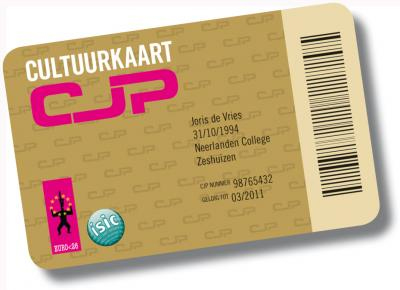
Het was het onderwerp waarover hij het hardst gelogen had, zoals wij een jaar geleden aantoonden, maar de meest gehate staatssecretaris van het land maalde er niet om. Ondanks het grote succes moest de cultuurkaart voor scholieren sneuvelen, en op oneigenlijke gronden. Nu is de kaart door de kamer gered. Een meerderheid stemde voor een motie van CDA en PvdA,…
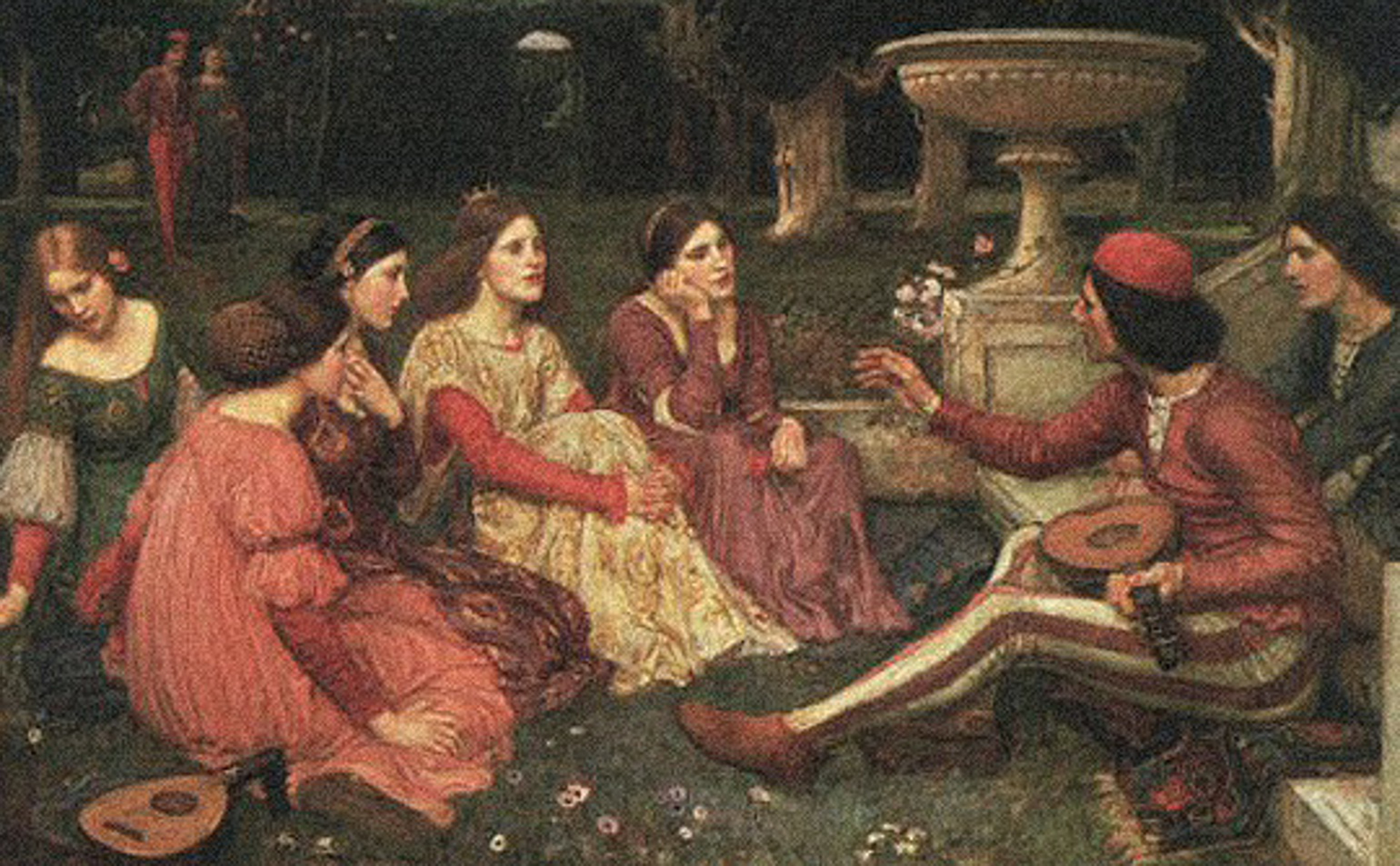
Mensen die om duidelijkheid vragen, roepen vaak om ‘namen en (rug)nummers’, maar in de klassieke muziek is dat gedoe met namen en nummers juist de reden waarom niemand er nog wat van begrijpt. Het gaat dus, volgens ex-marketeer en nu verhalenverteller Nancy Wiltink niet alleen om je verhaal, maar ook of dat verhaal

It is now becoming clear where the laissez faire-laissez mourir (let it be done, let it die) policy of Halbe Zijlstra, Martin Bosma and Mark Rutte will lead. Of the dozens of institutions that will close, downsize or die off in the coming months due to vacancy of quality staff, the demise of Theatre Institute of the Netherlands (TIN) is starting to take on very tragic proportions.

Mail from Actors' Interests, the actors' 'union'. Whether we want to abide by the embargo. Of course we do. We do. Butreh: so the Theatre Institute Netherlands, to be dissolved by Halbe Zijlstra together with the Netherlands Music Centre, is getting an award. And that seems to be a sculpture, which in turn makes us wonder where the thing should be after 1 January 2013....
200 miljoen minder, de helft eruit bij de basisinfrastructuur van de kunsten in nederland. wat blijft er over, hoe reageert het veld. Volg het hier. advies raad voor cultuur
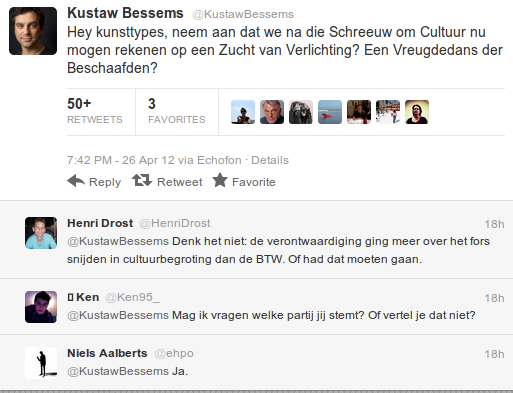
Na de presentatie van de Rotterdamse en Haagse kunstadviezen, en een paar dagen tot weken voor de harde oordelen van de Raad voor Cultuur, en een paar maanden voor de vernietigende rapporten van het Fonds Podiumkunsten, begint duidelijk te worden hoe ingrijpend de Nederlandse cultuursector geraakt wordt

Historisch materiaal, zullen we het maar noemen. De brief van Halbe Zijlstra, demissionair staatssecretaris van Cultuur, en Uri Rosenthal, de al even demissionaire minister van Buitenlandse Zaken over het internationale cultuurbeleid van populistisch Nederland. Zo kil en zakelijk als het gevallen kabinet Rutte omging met cultuur, zo is ook de formulering van het cultuurbeleid in internationaal perspectief, blijkt uit de…
You must be logged in to post a comment.